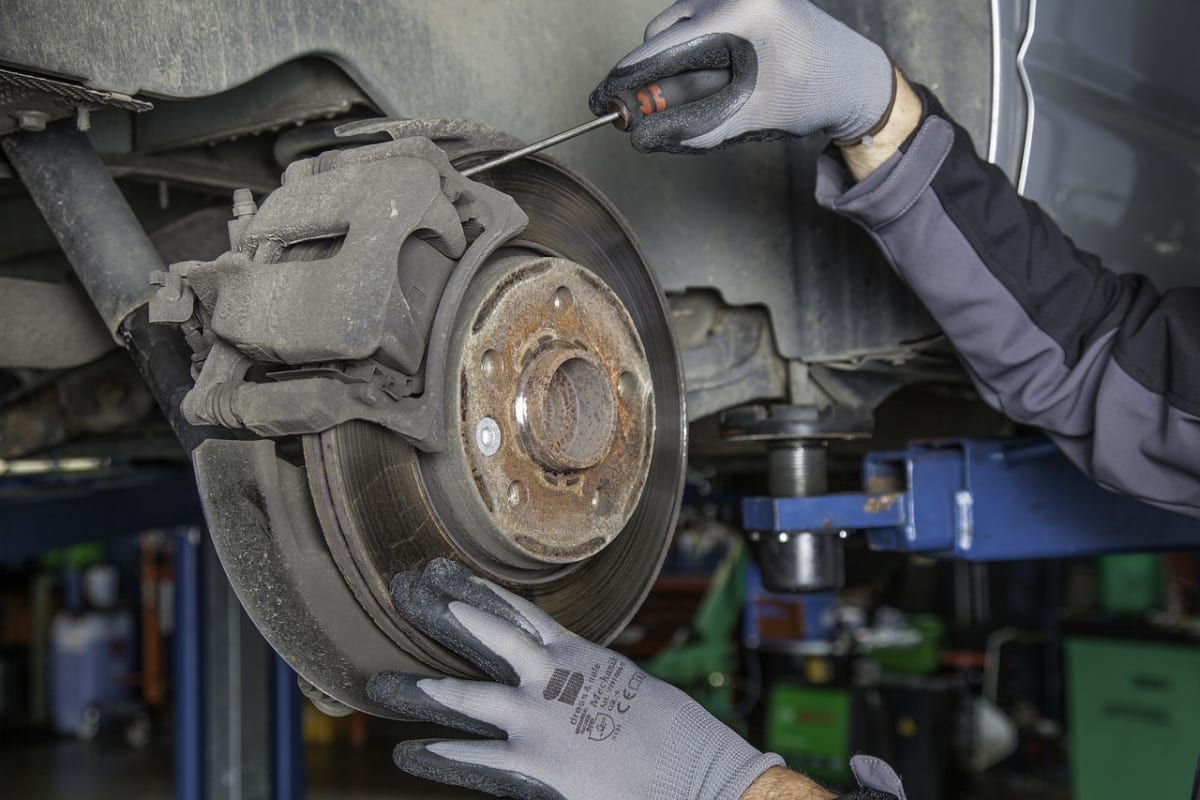Brake calipers are the unsung heroes of your car’s braking system, playing a pivotal role in ensuring safe and efficient stops. By converting hydraulic pressure into mechanical force, calipers press the brake pads against the discs to create the friction needed to slow or halt your vehicle. This article explores the function, types, and maintenance of brake calipers, shedding light on their importance in maintaining your car's safety and performance.
Introduction to Brake Calipers
Importance in Braking System
Brake calipers are essential for your vehicle's braking efficiency and safety. Acting as the link between hydraulic pressure and mechanical action, they push brake pads against spinning discs to create friction, slowing or stopping the vehicle. Properly functioning calipers ensure even braking force distribution across all wheels, maintaining balance and control, especially during emergency stops. Regular maintenance of calipers is vital to prevent failures that could compromise safety and increase stopping distances.
Basic Functionality Explained
The primary role of a brake caliper is to convert hydraulic pressure into mechanical force. When the brake pedal is pressed, fluid from the master cylinder flows through the brake lines to the calipers, creating pressure that activates the pistons. These pistons push the brake pads against the discs, generating friction to decelerate the wheels. High-quality calipers ensure consistent braking performance, which is critical for safe driving. Understanding their operation underscores the importance of routine checks to keep them in optimal condition.
Types of Brake Calipers
Fixed vs Floating Calipers
Brake calipers are broadly classified as fixed or floating. Fixed calipers, mounted rigidly, have pistons on both sides of the disc and provide superior braking performance, making them ideal for high-performance vehicles. Floating calipers, by contrast, have pistons on only one side and move laterally to apply pressure to both sides of the disc. They are simpler and more cost-effective, commonly found in standard passenger cars. Understanding these differences helps in choosing the right caliper type for your vehicle’s needs.
Single-piston vs Multi-piston
Calipers also differ based on the number of pistons. Single-piston calipers are common in everyday vehicles, offering reliable performance for normal driving conditions. Multi-piston calipers, found in high-performance cars, distribute pressure more evenly, improving braking power and reducing wear. While multi-piston calipers enhance responsiveness and reduce brake fade, they are more complex and expensive to maintain. The choice between single and multi-piston calipers depends on your vehicle’s performance demands.

How Brake Calipers Work
Interaction with Brake Pads
Brake calipers interact directly with the brake pads to generate the friction needed for braking. Hydraulic fluid activates the pistons within the calipers, which press the pads against the discs. This friction slows the rotation of the wheels, enabling the vehicle to decelerate. Ensuring even pressure across the pads prevents uneven wear, which can compromise braking efficiency. Regularly inspecting and maintaining this interaction is crucial for optimal performance and safety.
Role in Stopping Power
Calipers are central to a vehicle's stopping power, directly influencing braking effectiveness. They ensure the brake pads apply consistent pressure to the discs, enabling rapid deceleration without losing control. In high-speed or emergency braking scenarios, quality calipers are crucial for safe and stable stops. Multi-piston calipers further enhance performance by distributing pressure evenly, reducing wear and improving reliability. Regular maintenance ensures calipers function effectively, safeguarding vehicle safety.
Maintenance of Brake Calipers
Common Signs of Wear
Signs of caliper wear include uneven brake pad wear, reduced braking power, and unusual noises such as grinding or squealing. Other indicators include pulling to one side during braking or visible leaks of brake fluid. Addressing these issues promptly prevents further damage and ensures reliable braking performance. Regular inspections are key to identifying potential problems early and maintaining the safety and efficiency of your braking system.
Routine Maintenance Tips
Effective caliper maintenance involves regular checks of brake fluid levels and inspections for wear or damage. Clean calipers and apply brake grease to contact points to ensure smooth operation. Check pistons and slides for corrosion or sticking, addressing any issues promptly. During tyre rotations or other services, ask your mechanic to inspect the calipers for optimal functionality. Routine maintenance not only extends the lifespan of your braking system but also enhances overall vehicle safety.
Innovations in Brake Caliper Design
Modern Materials Used
Recent advancements in materials have revolutionised brake caliper design. Lightweight yet durable materials like aluminium and carbon composites have replaced traditional cast iron. Aluminium improves heat dissipation and reduces overall vehicle weight, enhancing efficiency. Carbon composites, though expensive, withstand extreme temperatures, making them ideal for performance vehicles. These materials boost caliper durability and contribute to improved braking performance and fuel efficiency.
Future Trends in Technology
The future of brake calipers includes electronic control systems for precise braking adjustments, crucial for electric and autonomous vehicles. Advanced composite materials and 3D printing are enabling more efficient, customised designs. These innovations promise lighter, stronger, and more adaptable calipers, enhancing both performance and sustainability. As technology evolves, brake calipers will continue to play a pivotal role in advancing vehicle safety and efficiency.









